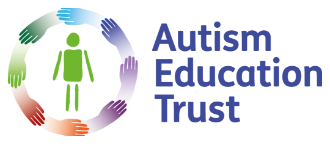Online Safety
Being online is an integral part of children & young people's lives
Social media, online games, websites and apps can be accessed through mobile phones, computers, laptops and tablets – all of which form a part of children and young people’s online world. The internet and online technology provides new opportunities for young people’s learning and growth, but it can also expose them to new types of risks.
Government guidance for schools across the UK highlights the importance of safeguarding children and young people online. It states that E-safety should form a fundamental part of schools’ and colleges’ safeguarding and child protection measures.
When it comes to e-safety practice, compliance is the only way forward, not negligence.
You need the facts, not guesswork - Kirklees Safeguarding procedures will be followed where an online safety issue occurs which gives rise to any concerns related to child protection.
As a school we acknowledge the specific guidance in:
Section 1.4.5 Child Abuse and Information Communication Technology
This section of the Kirklees Safeguarding procedures covers awareness of, and response to, issues related to child abuse and the internet.
It is important to always be aware of what your child is accessing when they are online
Below are a number of different helpful and informative links:
-
e safety
-
Parent guide to Snapchat
-
Parent guide to Tik Tok
-
Protect young eyes
-
nspcc.org.uk/keeping-children-safe
-
thinkuknow.co.uk
-
ceop.police.uk/safety-centre/
-
facebook.com/help
-
saferinternet.org.uk/safer-internet-day/safer-internet-day-2020/i-am-parent-or-carer/film-how-can-parents-talk-children
-
saferinternet.org.uk/safer-internet-day/safer-internet-day-2020/i-am-educator/film-are-you-freetobe-yourself-online
As well as accessing the internet via traditional webpages, it is also really important that we are aware of the different apps which our children may be using. The image below shows a number of apps that your child may be accessing.
*Please also remember that new apps are released all the time and that it is important to be aware of how your child is accessing the internet:
While we feel that the use of technology is a largely positive aspect of modern life, we cannot ignore the risks that can be associated.
The following link will take you to a range of different guides that will be useful in supporting your child:
https://safetynet.skipseducational.org/
- Think before you post. ...
- Use the privacy settings. ...
- Be aware of your digital footprint. ...
- Use strong passwords.
CyberbullyingCyberbullying is bullying with the use of digital technologies. It can take place on social media, messaging platforms, gaming platforms and mobile phones. It is repeated behaviour, aimed at scaring, angering or shaming those who are targeted. Disabled young people and those with SEN (SEND), are significantly more likely to experience bullying - including online bullying - than their peers. Children who have learning disabilities and autism are particularly at risk. A recent report found that 36% of students with special educational needs had been bullied whilst the rate among their peers was 29%. Those who reported having special educational needs were 12% more likely to have experienced cyberbullying than those who did not.
Grooming / Child Sexual Exploitation (CSE)
Online grooming is where someone befriends a child online and builds up their trust with the intention of exploiting them and causing them harm (Childnet).
Online risks such as Grooming are higher for children and young people with autism, ADHD and other special educational needs and disabilities. They are more than 3 times as likely to be persuaded into unwanted sexual activity or to feel controlled online.
Further resources are available at -
https://www.thinkuknow.co.uk/parents/articles/What-is-sexual-grooming/
Whenever using the internet, remember to say 'SMART':
Please report all online safety incidents which occur, and/or any concerns to:
Andy Higginbotham (Online Safety Contact) andrew.higginbotham@woodleyschool.org.uk
Judith Beaumont (Lead DSL)

